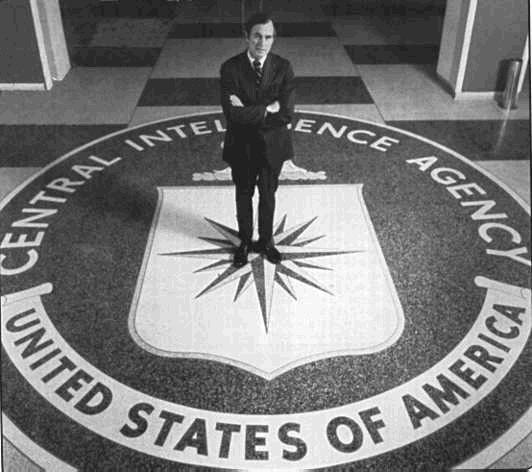Re: The Rise of the Russian Empire: Russo-Armenian Relations

The security services of the Baltic states are among the most active in anti-Russian espionage, according to remarks attributed to Nikolai Patrushev, director of Russia’s Federal Security Service (FSB). Lithuanian newspaper Kauno Diena claims in a Dec. 29 report that the country could face a Russian backlash as a result of its perceived status as a centre of "anti-Russian extremism." Two weeks ago, Baltic special services with Lithuania among them, received special attention from Patrushev during a press conference. "In 2007 secret services of foreign countries, especially those of the Baltic states, have become more active," Patrushev was quoted as telling journalists.
The newspaper’s sources in Russia say that the idea of Lithuania becoming one of the main players in the world of espionage is becoming more prevalent at FSB headquarters. "The Russian Ministry of Foreign Affairs and the secret services have it that Vilniusis becoming the ‘outpost number 2 of anti-Russian extremism’ after London", an unnamed high-ranking Kremlin official told the daily. Kauno Diena says Russia is certain that Lithuania's authorities and secret services are encouraging the activity of anti-Russian groups and actively collaborates with the secret services of the US and Great Britain. Lithuania's Ministry of Foreign Affairs is also receiving signals that the Kremlin is becoming increasingly suspicious of Lithuania.
"They are convinced in Moscow that Lithuania is the largest and one of the most active diasporas of Chechens. The secret services are emphasizing in their reports that Lithuanian authorities do not interfere with the activity of ‘extremist groups’ and arrive at a conclusion that it is in fact the opposite case scenario - such activity is promoted. Moreover, the reports in question state the groups of ‘Chechen extremists’ are actively collaborating with Lithuania's secret services," according to "well-informed individuals". Russia's Foreign Intelligence Services (SVR) has drawn attention to the fact that the family of the late Chechen President Dzohar Dudajev found refuge in Lithuania. In the opinion of the SVR, Dudajev's sons could form a future rallying point for Chechen nationalists in their attempt to win independence from Russia.
Reportedly, Moscow also suspects that fugitive Russian oligarch Boris Berezovsky has also become more active in Lithuania. Berezovsky was a former power-broker of Russian politics during the Yeltsin era but fled to London in 2001 and is wanted by the Russian authorities. Berezovsky has been among those blaming the murder of his friend, former FSB officer Alexander Litvinenko, on the Russian authorities. The paper's sources say that Russia's secret services are also preparing an attempt to undermine the reputation of Euro MP Vytautas Landsbergis, who still commands considerable influence and respect in Lithuania a decade and a half after fronting Lithuania’s independence movement.
Source: http://www.baltictimes.com/news/articles/19561/
Russia preparing Lithuanian offensive - claim

The security services of the Baltic states are among the most active in anti-Russian espionage, according to remarks attributed to Nikolai Patrushev, director of Russia’s Federal Security Service (FSB). Lithuanian newspaper Kauno Diena claims in a Dec. 29 report that the country could face a Russian backlash as a result of its perceived status as a centre of "anti-Russian extremism." Two weeks ago, Baltic special services with Lithuania among them, received special attention from Patrushev during a press conference. "In 2007 secret services of foreign countries, especially those of the Baltic states, have become more active," Patrushev was quoted as telling journalists.
The newspaper’s sources in Russia say that the idea of Lithuania becoming one of the main players in the world of espionage is becoming more prevalent at FSB headquarters. "The Russian Ministry of Foreign Affairs and the secret services have it that Vilniusis becoming the ‘outpost number 2 of anti-Russian extremism’ after London", an unnamed high-ranking Kremlin official told the daily. Kauno Diena says Russia is certain that Lithuania's authorities and secret services are encouraging the activity of anti-Russian groups and actively collaborates with the secret services of the US and Great Britain. Lithuania's Ministry of Foreign Affairs is also receiving signals that the Kremlin is becoming increasingly suspicious of Lithuania.
"They are convinced in Moscow that Lithuania is the largest and one of the most active diasporas of Chechens. The secret services are emphasizing in their reports that Lithuanian authorities do not interfere with the activity of ‘extremist groups’ and arrive at a conclusion that it is in fact the opposite case scenario - such activity is promoted. Moreover, the reports in question state the groups of ‘Chechen extremists’ are actively collaborating with Lithuania's secret services," according to "well-informed individuals". Russia's Foreign Intelligence Services (SVR) has drawn attention to the fact that the family of the late Chechen President Dzohar Dudajev found refuge in Lithuania. In the opinion of the SVR, Dudajev's sons could form a future rallying point for Chechen nationalists in their attempt to win independence from Russia.
Reportedly, Moscow also suspects that fugitive Russian oligarch Boris Berezovsky has also become more active in Lithuania. Berezovsky was a former power-broker of Russian politics during the Yeltsin era but fled to London in 2001 and is wanted by the Russian authorities. Berezovsky has been among those blaming the murder of his friend, former FSB officer Alexander Litvinenko, on the Russian authorities. The paper's sources say that Russia's secret services are also preparing an attempt to undermine the reputation of Euro MP Vytautas Landsbergis, who still commands considerable influence and respect in Lithuania a decade and a half after fronting Lithuania’s independence movement.
Source: http://www.baltictimes.com/news/articles/19561/







 Actually, that's why they poisoned. The so-called "criminal court" were scared xxxxless when it came to Milosevic's defense proceedings.
Actually, that's why they poisoned. The so-called "criminal court" were scared xxxxless when it came to Milosevic's defense proceedings.
Comment